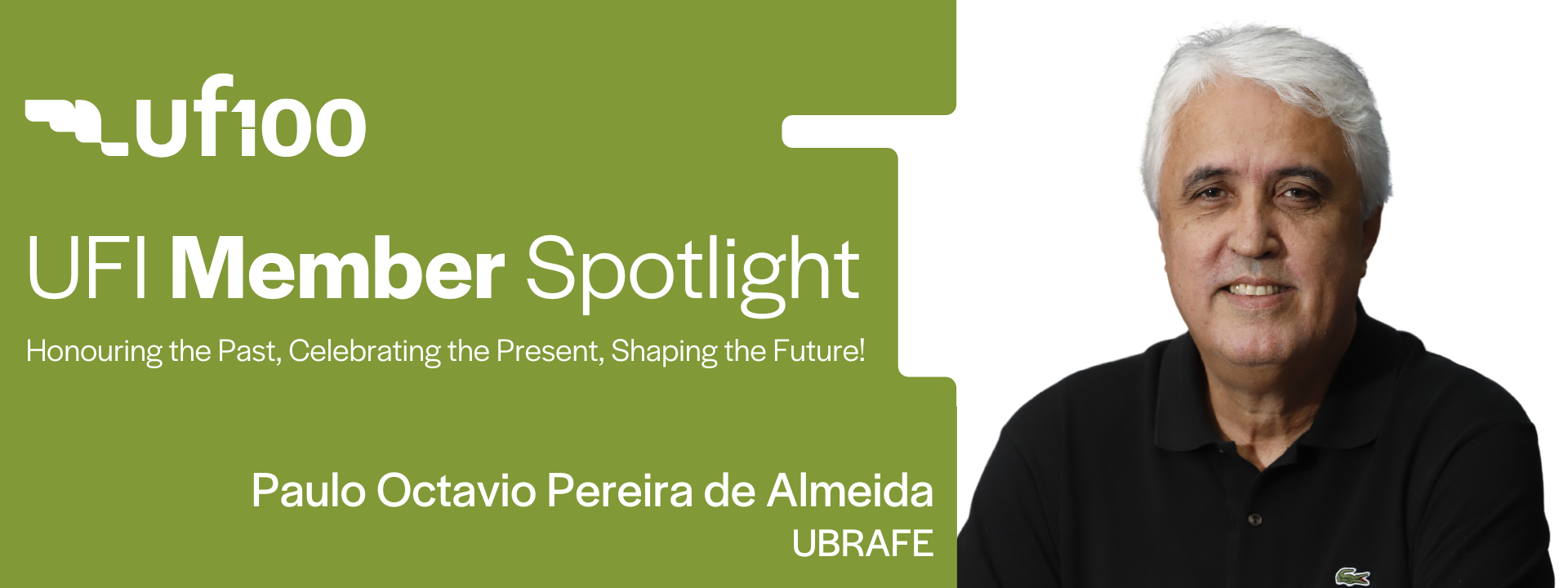by Paul Woodward
It’s not often that you get to spend the day with 625,000 other people all in one place. UFI’s Executive Committee and I enjoyed that experience last week as we enjoyed a record-breaking day at the Shanghai World Expo. With around 55 million visitors already through the turnstiles the event, spread over 3.8 sq. km, is of staggering proportions.
What lessons, if any, can we draw from the experience of the organisers in our more modestly-sized trade fairs, exhibitions and conferences? We were privileged to hear it from the ‘horse’s mouth’ as our Asia/Pacific Chapter Chairman and guide last week is Chen Xianjin, Deputy Director General of the World Expo’s Coordination Bureau.
A couple of lessons really stuck in my mind:
1. Be prepared to respond very quickly to the unexpected: Mr. Chen gave us some great insights into how fast the organisers moved during the ‘warm-up’ days prior to the official opening when the size of the crowds stress-tested some of the systems to their limits. It was clear from that huge crowd last week that, although the queues for many pavilions are quite long, the lessons had been learned and that the visitor management was remarkably smooth. Of course, it helps to have three divisions of the PLA as your security detail!
2. Senior management must know what is happening: all the senior managers at the Expo are updated at least hourly by SMS on the numbers of people in the park and any other key details of the day’s activities.
3. For maximum effect, communicate a simple message strongly: for me, the most successful pavilions were those where a simple, in many cases single, message was communicated very strongly. With the overwhelming experience of all those people, all those pavilions, all those videos, it is very difficult to make a lasting impression if you try to tell a very complicated story.
I’m not going to tell you my favorite pavilion (it was actually a draw for me between two), but I will tell you my favourite statistic: there are two shifts of workers at the Expo every day. Each shift is 40,000 people and that excludes the security. So, over 100,000 staff to man the site before a single visitor walks through the gates each day!






IFES held it’s annual mmeting in Shanghai June 24-26.
Attached are comments from various country exhibit professionals with their thoughts on the Expo and the Chinese people. Our best learning experiences are from personal experince.
Peter Theodorides, President/Vision LTD,-Athens, Greece. The quality of country pavilions was most impressive! A first class event!
Benedict Meissner, EWI Germany, served as a project manager for the installation of the
German pavilion in Shanghai. He lived and worked in Shanghai for four months prior to
the opening of the Expo. “To achieve my goals in China during the set up, it was
important to note that I was the guest in their country. The Chinese culture is so strong
and unique and I cannot change their way of thinking and I needed to alter my own
behavior to get things done.” says Benedict Meissner.
Leslie Zech, CEO, IEEC/Vienna, Austria, past president of IFES.
Creativity in exhibit design seems to have no end. A marvelous event to stimulate the imagination when budgets are good.
Koen Bogaert, CEO Publiganda, Belgium, past president of IFES, observed the
following- “The Chinese people are very curious! They are eager to learn, and they will.
We will also learn from them as time goes on. The western world cannot be too arrogant,
presumptuous, nor self satisfied with the status quo. Let’s stay alert as the
Chinese make their way in the world economy” says Koen Bogaert.
Christopher Dorn, President –Idea International-Tokyo, Japan- “The IFES group of
company owners from Europe are very knowledgeable and professional partners who are
experiencing the same exciting growth and challenges in China for their customers as we
are in Japan and in the USA.
Rob Beens, CEO Boemer Rental Service Group, Amsterdam-“The City of Shanghai is a
business boomtown like New York was in the 60’s.
The ambitions of Chinese companies need to be anticipated in both Europe and the US.
Chinese companies are extremely eager to move up the ladder with a speed which is
difficult for us to grasp.
Social – economic issues are getting more important and will “help” the world in
streamlining Chinese developments:
o Value of yuan
o Social rights of staff
o Increase of wages
Based on these developments and impressions, China is not a threat but a force. We can
learn from them regarding their ambitions and energy. Our competitive (US/Europe edge
can only be based on quality!) says Rob Beens.
Voicu Sferdianu, Expo Design System, Romania on the Expo site in Shanghai- “Visiting
World Expo 2010 in Shanghai gave me the great opportunity of some very interesting
commentaries on the socio-cultural intricacies and attitudes of the times we live in… With
all the climate changes, with the unprecedented population increase living mostly in inner
city centers, this year’s central theme at the Shanghai Expo “Better City, Better Life”
could not have been better chosen.
I was amazed to notice the green initiatives at the Expo, alternative transport modes that
do not use fossil fuel, recycling strategies to reduce waste, extensive passive design
techniques, and renewable technologies, all leading to the idea of a sustainable future”.
Sarah Chew, Director Sales & Marketing for Kingsmen, Singapore on the 2010 Expo-
“An awesome and enriching journey through an enormous showcase of powerful
messages carrying different appeals, cleverly interwoven into exhibits, utilizing the latest
in design trends and technology. WOW!
You really need to have time and plenty of patience to be able to experience it all. Tip: A
Press pass helps .
Bruno Meissner, IFES President/ Meissner Expo, Hamburg, Germany commented as
follows-What an experience! The world’s biggest World EXPO in the world’s most
vibrant city! Every single pavilion we visited gave us a new view on the world and is
helping us to understand better the motto “Better City – Better Life”. Especially the
Chinese Pavilion which gave me an encouraging view on the visions of modern
China. This trip – including the IFES Convention, uncovered so many insights on intercultural
competences – it was one of the best investments I made this year. I feel sorry for
all those who were not able to join …” says Bruno Meissner.
The IFES tag line “Sharing Knowledge” is best realized by attending IFES events. The
subtle comments made between country friends while taking a bus ride is where our
similarities and differences are truly exposed. Like the value of tradeshows, eyeball to
eyeball communication and the value of international group interaction among suppliers
is the most powerful.
As a side note, IFES attracted five Chinese exhibit suppliers to join the IFES
organization.
The world exposition market is coming together!
Say, Larry Kulchawik, past president of IFES.
More than 100 000 staff a day is indeed very impressive, for the logistic of it… and the payroll!
What about the economic aspect of such an event? Beside the “side effects” (local economic impact), does it appear as a profitable business?